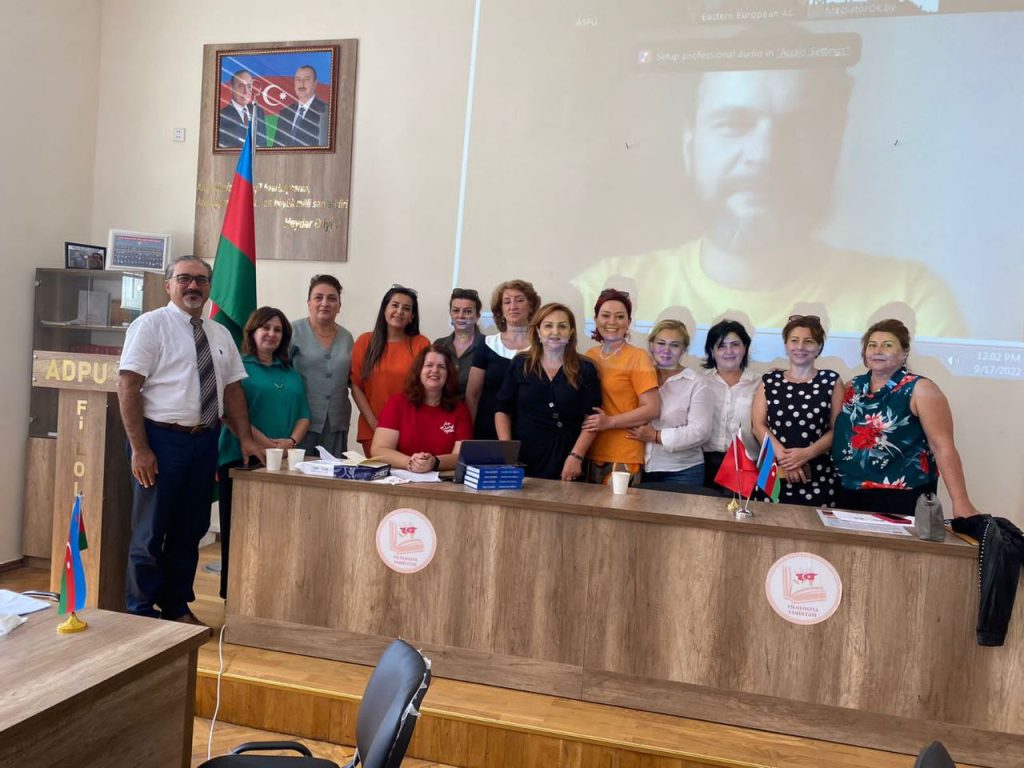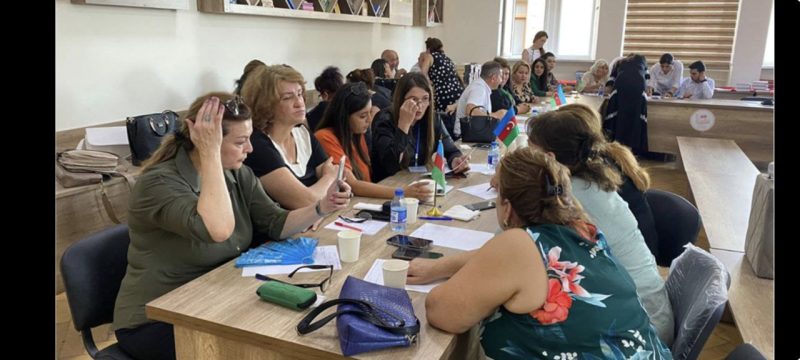Mediators for Dialogue: Lessons and Consequences of Regional Armed Conflicts in the EaP Countries and Russia
A working meeting on this topic was held in Azerbaijan in the fall of 2022 and was organized by members of the EENCE. The conclusions drawn from the meeting remain relevant today.
Host organization – Adult Education Association Public Union (Azerbaijan) brought together experts from Belarus, Ukraine, Azerbaijan, Armenia, Russia.
The following issues/questions were discussed during the event:
• Armed and military conflicts within countries and with other states over the past 100 years.
• How and how did these conflicts end?
• What were the main internal and external consequences after their completion: social, political, economic?
• Have the state and society learned lessons from the past conflicts? How were they broadcast and discussed in
society?
• Did mediation (professional mediation) take place in the course of the course and as a tool to end the above conflicts?
• What events were held in peacetime to prevent possible social, international and other conflicts?
• What place and role do children, the younger generation, adults play in prevention.
• What role (if any) did civic education play during the restoration of the state and society?
• To what extent was the state power interested in resolving conflicts and their further prevention. Has mediation been used?
• Has there been an admission of guilt and acceptance of responsibility for unleashing armed (military) conflicts, as well as participation in the restoration of the affected territories (on the example of Germany). If it did, then what entities or entities did it?
• What ways, tools and methods do you personally see of stopping and resolving military (armed) conflicts?
• What opportunities and ways do you personally see of using Mediation in past and current armed conflicts?
• How widely and how is mediation used in your country as a whole in resolving social conflicts?
• What could or could each individual mediator or communities of mediators personally do in the prevention and resolution of armed conflicts?

On 2-nd day of the event, the open workshop conflict mediation was held at Azerbaijan Pedagogical State University. About 100 people, including 80 trainers and 20 psyhologists/consultants were participated at the workhsop. Forms of work at the workshop were regional government speech/statement, mediation, forum theater, debate, world cafe.
The workshop was conducted by experts from the “Mediators for Dialogue” initiative.
The trainers-consultants presented mediation as an effective tool for solving conflicts at any level, including those that erupted during and as a result of regional armed conflicts.
The participants focused on the low evaluation and narrow use of the effective tool of Mediation in resolving conflicts
arising in wartime and post-war times.
On 3-rd day the experts travelled to region. They discussed the results of the previous day and the preparation of recommendations for participants and mediators and provided consultations to the community members. Totally, experts provided consultations to almost 15 persons who affected from armed conflicts between Azerbaijan and Armenia.
In general, the project contributed to the expansion of ideas of mediation and non-conflict conflict resolution, and strengthening the civil society in the EENCE region.
Сonclusion:
Despite that mediation is not so popular in some Eap countries as a tool for resolving social conflicts and our countries still remains a largely traditional society, and social conflicts are resolved through personal connections and sometimes through the use of informal methods and rules, the experts agreed that negotiations are the only reliable way to resolve a military conflict.
Any solution must take into account the interests of both parties. Its absolutely crucial that the new realities in the region should be taken into account. Any solution based on ignoring the changes in region will not be succeded. Instead of endless and useless discussions on the political status of the region, we should more concentrate on
people-to-people contacts and normalization of relations between the conflicting societies.
The mediators from civil society should be more active in engaging the wider society. The mediation is an important part of the conflict resolution process, but any successful mediation requires first of all neutrality, as well as some resources and leverage.
The main problem of peacekeeping in the conflict is that mediators and peacekeepers created a very narrow and close circle of people who interact only with each other and have virtually no influence on society.
Individual mediators through the education of society can only indirectly influence armed conflicts in the following ways
– personal example of life, behavior and prevention of personal possible conflicts
– teaching peaceful ways of communication and mediation of conflicts, countering bullying
in children’s educational institutions in peacetime
– widespread establishment of school mediation services
– training in mediation and peaceful communication in secondary schools and universities
– mediation of family disputes
– propaganda through the mass-media of peaceful resolution of disputes at any level, starting from the family.
The meeting has been funded by the Federal Agency for Civic Education using funds appropriated by the Federal Foreign Office, Expanding Cooperation with Civil Society in the Eastern Partnership Countries and Russia (Eastern Partnership Programme).


